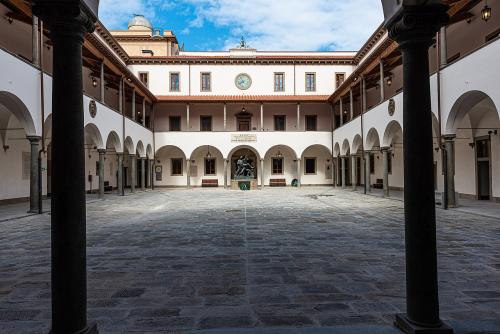UK legal expert scorns Italian judgment in Lettori dispute

FLORENCE - In the long-running saga for fair treatment of foreign language lecturers in Italy, an eminent legal academic has condemned a recent decision by the Florence court of appeal that flies in the face of previous European Court of Justice rulings.
In a direct response to the ruling, Noreen Burrows, Emeritus Professor of European Law at Glasgow University, criticised the Italian court’s failure to comply with EU legislation saying, “The European project relies on the cooperation of member states in the implementation of EU law.”
The Florentine ruling is the latest in an ongoing legal dispute between foreign language assistants at Italian universities and their employers. Far from receiving overdue compensation, the six Lettori involved have been ordered to repay the University of Pisa, with sums estimated at 50,000 euros per head. The case concerns original payments made to the lecturers unilaterally by the university, which had been accepted on the basis that the full sums owed would be paid later. Critics say that this decision could never have been reached if the Florence court of appeal had properly applied ECJ rulings.
In a landmark case in 2006, the ECJ stated that Italian law no. 63 of 2004 offered appropriate framework for the cases regarding the compensation of foreign lecturers. However, many Italian courts instead rely upon the so-called Gelmini law of 2010, which grants claimants significantly less compensation, as it does not account for pay rises or changes to seniority gained after 1995. Earlier this year the ECJ threatened infringement proceedings against Italy for rulings of this kind. Critics therefore argue that every instance where the Gelmini law is implemented in place of Law 63 constitutes a clear rejection of the jurisdiction of the ECJ.
Yet Italian courts appear to act as if the ECJ does not exist. In the Florentine case, lawyers representing the Lettori requested that the case be referred to the ECJ, a necessary step in matters of EU law under Article 267. The request elicited no response from the presiding judges. It was this omission that particularly concerned Prof. Burrows, as she added “Article 267 of the Treaty on the Functioning of the European Union has the potential to provide a resolution to a legal issue should there appear to be uncertainty concerning the validity and the correct interpretation of EU law.”
Similarly, David Petrie, Chair of the Association of Foreign Lecturers in Italy, said that this is not the first example of Italian courts failing to refer to the ECJ.
“Our lawyers have consistently asked, pursuant to Art. 267 of the Treaty on the Functioning of the European Union, for a referral to the ECJ, this has never been granted, neither by the judge of first instance, nor by the appeal court, nor the court of Cassation (from which there is no appeal)”.
More than 200 foreign lecturers are still awaiting full compensation, with certain universities owing several million euros in total. At the University of Bari, 22 lecturers recently had their claims for compensation upheld, under Law 63. Yet an identical claim made in the same courthouse by 66 year-old Lisa Adams was rejected in line with the notorious Gelmini law. The Bari Court of Appeal will review her case in January 2023. When asked for comment, Ms Adams said “It cannot be right that some [judges] choose to apply EU law, while others choose not to. The psychological toll it has taken on my life is far from indifferent.”
jp-es

© COPYRIGHT ITALIAN INSIDER
UNAUTHORISED REPRODUCTION FORBIDDEN


